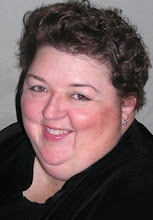For the past several decades, a series of SCOTUS (Supreme Court of the United States) has made a series of decisions that have simultaneously increased corporate power while reducing person freedoms and civil rights. Yesterday's decision (Burwell v. Hobby Lobby) was not the most egregious of these decisions, but certainly within the context of the court's record, the decision was cause for concern both in the specific case (reducing women's access to safe contraception) and the general case (increasing corporate power).
The case with the most far reaching effects that can already be seen is Citizens United v. Federal Elections Commission. I will not rehash all the implications of this decision, but anyone who has heard advertising on radio or television since this decision in 2010 knows the consequences. Corporations can spend whatever amount of money they want influencing public opinion on any political issue (and by implication, support any candidate they want) without disclosing their agenda or their spending.
If you don't know this full history, educate yourself. The question I want to briefly address here is: Now that the precedent has been set, what can we do to reverse it.
I will assume for the moment, my more anarchistic answers will not be happening any time soon, and pursue an answer that assumes the US government continues in its current form.
The answer is historical. The answer is that a future SCOTUS will need to be convinced by fact over precedent. The answer can be found in Brown v. The Board of Education of Topeka (1954).
There is a lot to debate about how successful this decision was in the specific case of school integration. But there is no debate in its role of reversing almost 80 years of the precedent of the "separate but equal" doctrine set in Plessy v. Ferguson (1896).
A significant part of the Brown decision was based on social science research. Fact prevailed over precedent. In the 1940s and 50s, social research was given much more respect than it is today and bigger questions were allowed to be researched. Psychologists Kenneth and Mamie Clark and Sociologist June Shagaloff-Alexander testified in court cases that were part of the Brown decision regarding research that showed the ill-effects of "separate but equal" on children educated in segregated schools. Their testimony and work were key to overturning the precedent.
Brown was not the first case brought before SCOTUS challenging separate but equal. Rather it was the culmination of years of legal strategizing that included training lawyers specifically with challenging the separate but equal doctrine in mind:
It may take a generation or two to overturn the damage of past 40 years. And even while I write this, I debate in my mind whether history could be repeated or if we just need a whole new system.African Americans and others who sympathized with their cause were bitterly disappointed by the Plessy decision. Over a decade later, in 1909, some blacks and whites joined together to form the National Association for the Advancement of Colored People (NAACP), which would eventually coordinate a successful legal challenge to the Plessy ruling. The NAACP brought together people of all races in an effort to improve the situation of people of color. Although the NAACP achieved some victories in the fight against Jim Crow laws in the first two decades of its existence, it was not until 1935 that the organization began actively to mount a campaign against segregation in schools. It did so assisted by legal counsels Charles Houston and William H. Hastie, and a young assistant, Thurgood Marshall, who would go on to be a member of the Supreme Court from 1967 to 1991. (The Free Dictionary: Brown v. Board of Education of Topeka, Kansas)
But what I do know because of this history is that "we just can't do it" is wrong. We can. We have. The question isn't a matter of can. It is a matter of will.



No comments:
Post a Comment